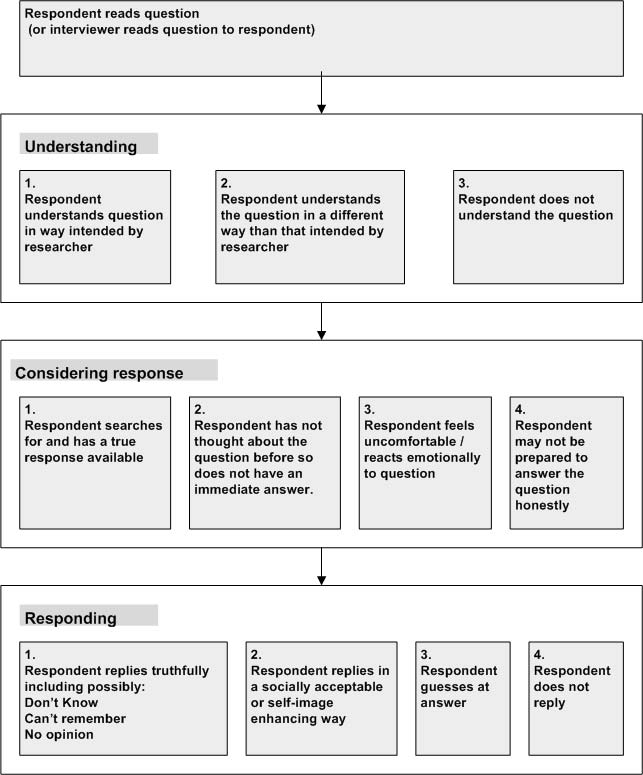When designing your online survey, you may assume that respondents understand each question the way in which each question is intended. It is also expected that respondents will answer questions with truthful and accurate responses. If the answer is easily recalled by memory or if the answer can be easily answered, the likelihood of the respondent answering truthfully is much higher. If a respondent cannot recall the information or cannot recall the answer to a question, they may still answer appropriately because the question was self-explanatory, asked in proper context, and gave the appropriate range of response choices – or, they may answer the question untruthfully in order to move forward in the survey.
Consider the following survey question. How many hours of television do you watch each weekday?
At first glance, it seems to consist of ordinary, nontechnical words that should be easy for respondents to comprehend. However, there can be substantial variability in respondents’ interpretation of concepts in what seem to be a straightforward survey question. Some respondents may interpret “you” in the question to include other people in the respondents’ household, or they may count days other than the five weekdays. Misinterpretation of survey wording can harm survey data quality.
To avoid misinterpretation, survey questions need to be structured and worded with accuracy and survey design skill.
In survey design reality, here is how a respondent approaches a survey question:
Once you understand how your respondents will interpret your survey questions, you can construct your survey questions for the most accurate answers possible. Respondents will interpret survey questions correctly and respond truthfully if you construct clear, concise, and contextually based survey questions.




